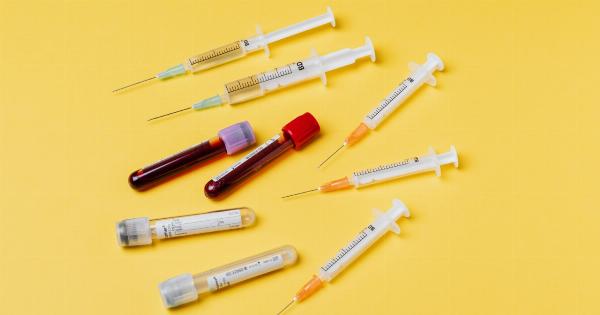Donating blood can save lives. Blood transfusions are a necessary part of medical treatments for a variety of conditions, including cancer, blood disorders, and surgeries.
The availability of blood can mean the difference between life and death for someone in need. Unfortunately, blood shortages can occur, which is why it’s important for those who are able to donate blood whenever possible.
Who can donate blood
Not everyone is eligible to donate blood. In the United States, individuals must meet certain criteria to donate blood, including:.
- Being at least 17 years old (16 with parental consent in certain states)
- Weighing at least 110 pounds
- Being in good health
There are also restrictions for those who have recently had certain medical procedures or illnesses. It’s important to check with blood donation centers for specific eligibility requirements.
The donation process
The process of donating blood is simple and relatively quick. It typically involves:.
- A brief health screening to ensure eligibility
- The actual donation, which takes around 10 minutes
- A recovery period with snacks and drinks to help replenish fluids lost during the donation
Most people are able to donate blood without any complications, but it’s important to follow any post-donation instructions provided by the blood donation center.
The benefits of blood donation
There are many benefits to donating blood, including:.
- The knowledge that you’re helping to save lives
- A sense of fulfillment and purpose
- A free health screening, which can alert you to potential health issues
- A boost in the production of new blood cells, which can have positive effects on overall health
Where to donate blood
There are many blood donation centers throughout the United States where individuals can donate blood. Some common centers include the American Red Cross, United Blood Services, and Blood Centers of America.
Tips for first-time donors
If you’re a first-time donor, you may be nervous or uncertain about the process. Here are some tips to help make the experience go smoothly:.
- Maintain a healthy diet and drink plenty of fluids before donating
- Wear comfortable clothing with sleeves that can be easily rolled up
- Bring a form of identification, such as a driver’s license
- Relax and try to remain calm during the donation process
- Take advantage of the snacks and drinks provided during the recovery period
Conclusion
Donating blood is a simple yet powerful way to help those in need. By taking the time to donate blood whenever possible, you’re contributing to the availability of a crucial resource that can save lives.
If you’re eligible to donate blood, consider making it a regular part of your routine.




























